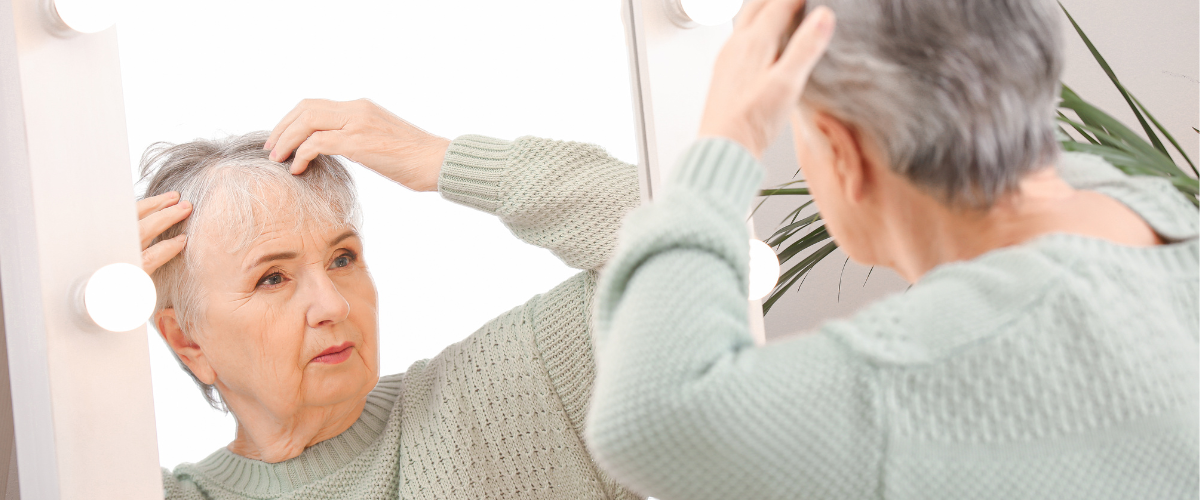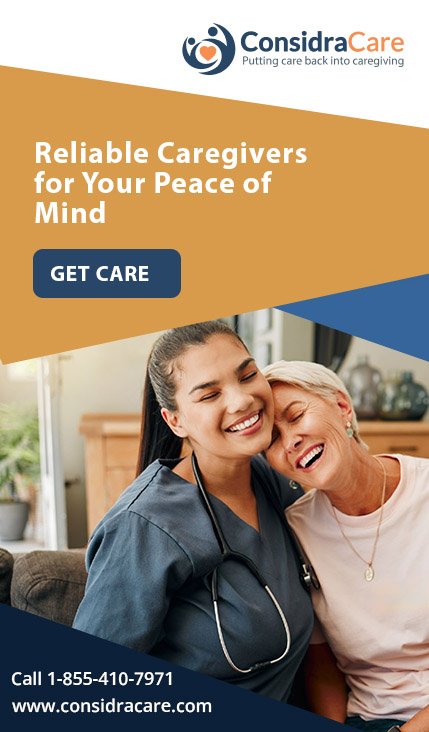Hair is just one aspect of your body that will undergo transformations as you get older. Hair normally changes in both colour and texture over time. Keeping your hair looking good as you age takes extra attention.
Hair is made up of protein strands. The average lifespan of a hair strand is two to seven years. Typically, hair grows 0.5 inches each month or six inches per year. Its growth rate and general health are influenced by things like age, diet, genetics, and general well-being.
As hair ages and has a shorter life cycle, shorter, finer hair sheds more frequently. This hair is typically replaced with brand-new, finer hair. However, practically everyone has some degree of hair loss as they age.
Why do seniors experience hair loss
Women and men experience age-related hair loss for a variety of reasons, including hereditary traits, endocrine disorders, thyroid problems, diminished hormonal support, and nutritional deficiencies.
Menopause becomes a significant factor for women when they enter their forties. As a result of the decreased follicle-stimulating sex hormones, testosterone frequently has a little edge. In some cases, environmental conditions and aging cause hair follicles to stop producing new hair. Over time, hair fibres become thinner and fall out; unfortunately, they never regrow.
Your hair’s pigment naturally changes in a number of ways as you get older. When the pigment cells in your hair stop producing as much colour, your once thick, chestnut hair will begin to thin down, become finer, and eventually turn grey. What else is there to do but schedule a colour appointment with your stylist? Then you have to deal with the damage that the chemicals in hair colour cause. That much alone is enough to make anyone feel insecure about their hair. But there is still hope!
1. Wash less regularly
How frequently you wash your hair will mostly depend on the type of hair you have. Nevertheless, regardless of your hair type, frequent washing can cause dryness and brittleness. Whether you have normal, oily, or dry hair, use the shampoo that is suggested for your type of hair.
2. Always apply conditioners and volumizers
After shampooing, condition your hair to maintain healthy hair. The conditioner is an essential component of hair care since it restores lost moisture and natural oils while also giving the hair gloss. Additionally, volumizers fill each hair strand to add additional volume by strengthening it like a splint.
3. Comb your hair
An urban myth states that you should brush your hair 100 times every day. In actually, this is not essential. But a gentle brushing motion can encourage healthy blood flow to the scalp, which is good for hair. A number of studies have found that massaging the scalp can help stimulate hair follicles, which can lead to thicker hair. Mason Pearson soft boar bristle brushes disseminate the hair’s natural oils while being gentle on delicate strands.
4. Choose better quality products
If you want to give your hair a colour treatment, it is best to choose a hairdresser. A stylist can recommend the best hair dye for your hair type and the safest shampoo and conditioner for color-treated hair.
Avoid using heat-styling appliances like blow dryers, curling irons, and flat irons on a regular basis. Everyone wants to look their best, but limiting the frequency of usage of high-heat styling tools to one or two days per week will aid in hair’s ability to repair the damage they cause.
If you must use heat-styling products, coat the hair with a heat protectant first. In order to avoid damage, a heat protectant hydrates the hair and creates a barrier between it and heated styling products.
Avoid using hair products that contain parabens and phthalates, which are commonly found in many hair products and can alter hormones. A live-in caregiver hired to provide senior home care services will run errands for the senior. They can buy good quality hair products so that the senior does not face hair loss
5. Get a haircut
According to Nunzio Saviano, owner of Nunzio Saviano Salon in New York City, it’s not a bad thing to get your hair cut a bit shorter as it ages, but it’s a myth that you have to get your hair cut short as you age. He claims that having too many layers just serves to highlight the texture’s deterioration, as opposed to layers that are longer, which keep structure and appear full.
6. Eat a protein-rich, well-balanced diet
Eating healthy can help promote healthy hair despite genetics or age. As the cliché goes, you are what you eat when it comes to your hair. Ensure that you consume a sufficient amount of food on a daily basis. Eat a variety of meals every day.
Because protein makes up the majority of hair follicles, avoid omitting this crucial vitamin. A lack of protein has been linked to hair loss. Women are advised by experts to occasionally eat a little amount of low-fat red meat. This absorbs your protein and other crucial elements. In addition, as you age, your thyroid slows down. Patients who experience mild iron storage anaemia mistake it for old age when they feel a little lethargic. This iron shortage can be alleviated by eating lean red meat. Spinach and other green vegetables are nutrient-dense for healthy hair. These are packed with iron, folate, vitamin A and C, as well as other minerals necessary for healthy hair.
Eggs are rich in biotin, which is essential for the hair protein.Omega-3’s. Salmon and other oily fish are also rich in omega-3 fatty acids, which may aid in hair growth. Strawberries, raspberries, and other berries are fantastic for your hair in addition to being a terrific source of vitamin C. Your body also uses vitamin C to produce collagen, a protein that supports healthy hair.
Avocados are rich in vitamin E and omega-3 fatty acids, both of which are necessary for healthy hair. Multivitamins further assist in replenishing nutrients that your diet lacks.
7. If in doubt, moisturize
Saviano recommends his clients to steer clear of drying mousses and gels since they can dull the luster of hair and make it appear lifeless. He says, “I like to use mousse created for curly hair because it tends to be moisturizing and less drying for the hair.” Fusco proposes applying nourishing conditioning treatments to brittle, aging strands. She enjoys applying macadamia nut oil masks once a week.
8. Consult your physician about your medication
Your hair may be affected by some drugs used to treat conditions like heart disease or lower cholesterol levels. Ask your doctor if any of the medications you take have any adverse effects on hair growth or loss and for advice on how to help counteract any effects. Some of these medications could cause finer fibres to shed. As an added note, women who undergo hormone replacement therapy should be prepared for some hair loss upon discontinuation of treatment.
Want to learn more?
ConsidraCare’s live-in caregivers are trained to offer professional support and companionship to seniors. reach out to us at wecare@considracare.com or call us at 1-855-410-7971 to arrange care for a loved one.

